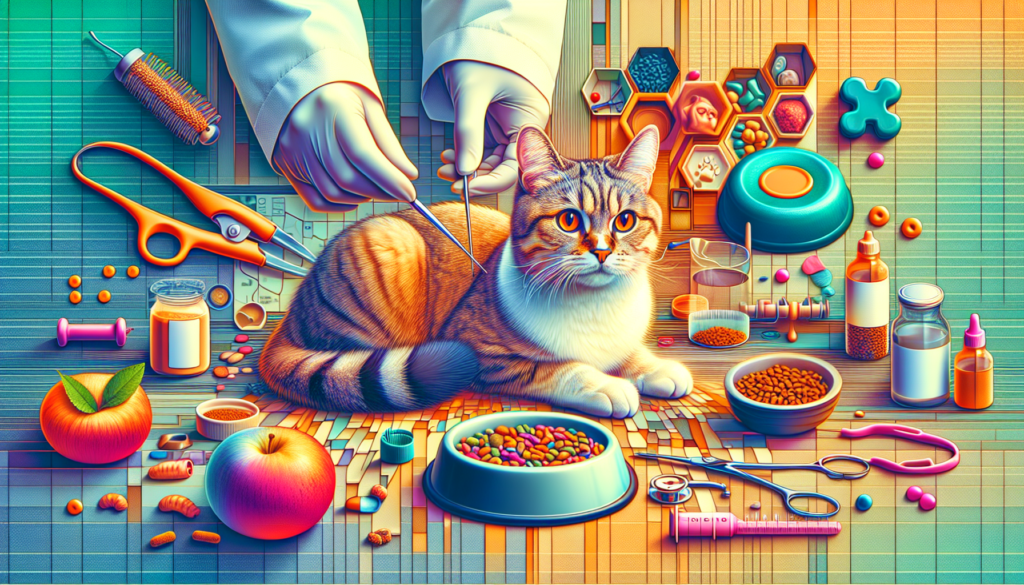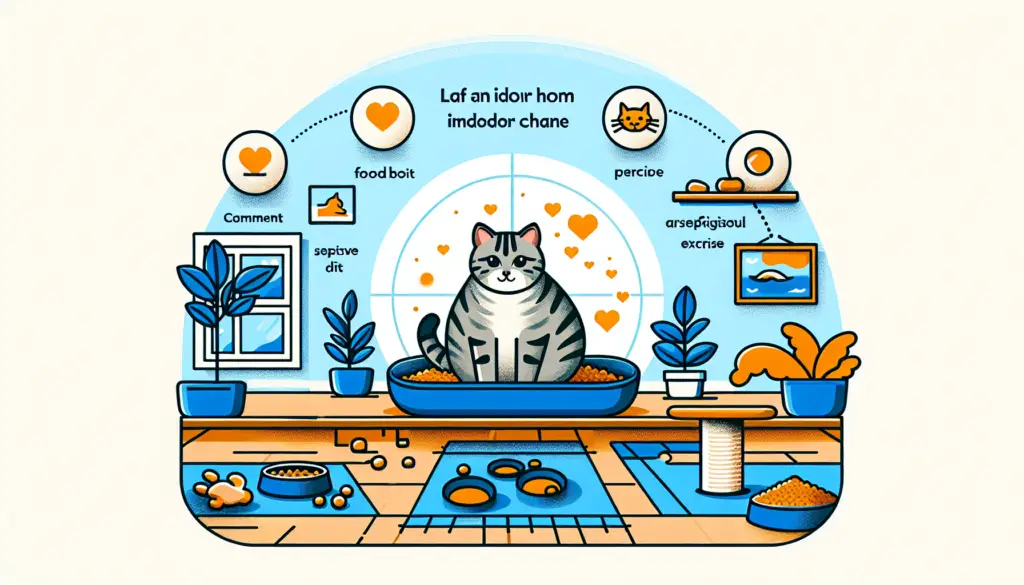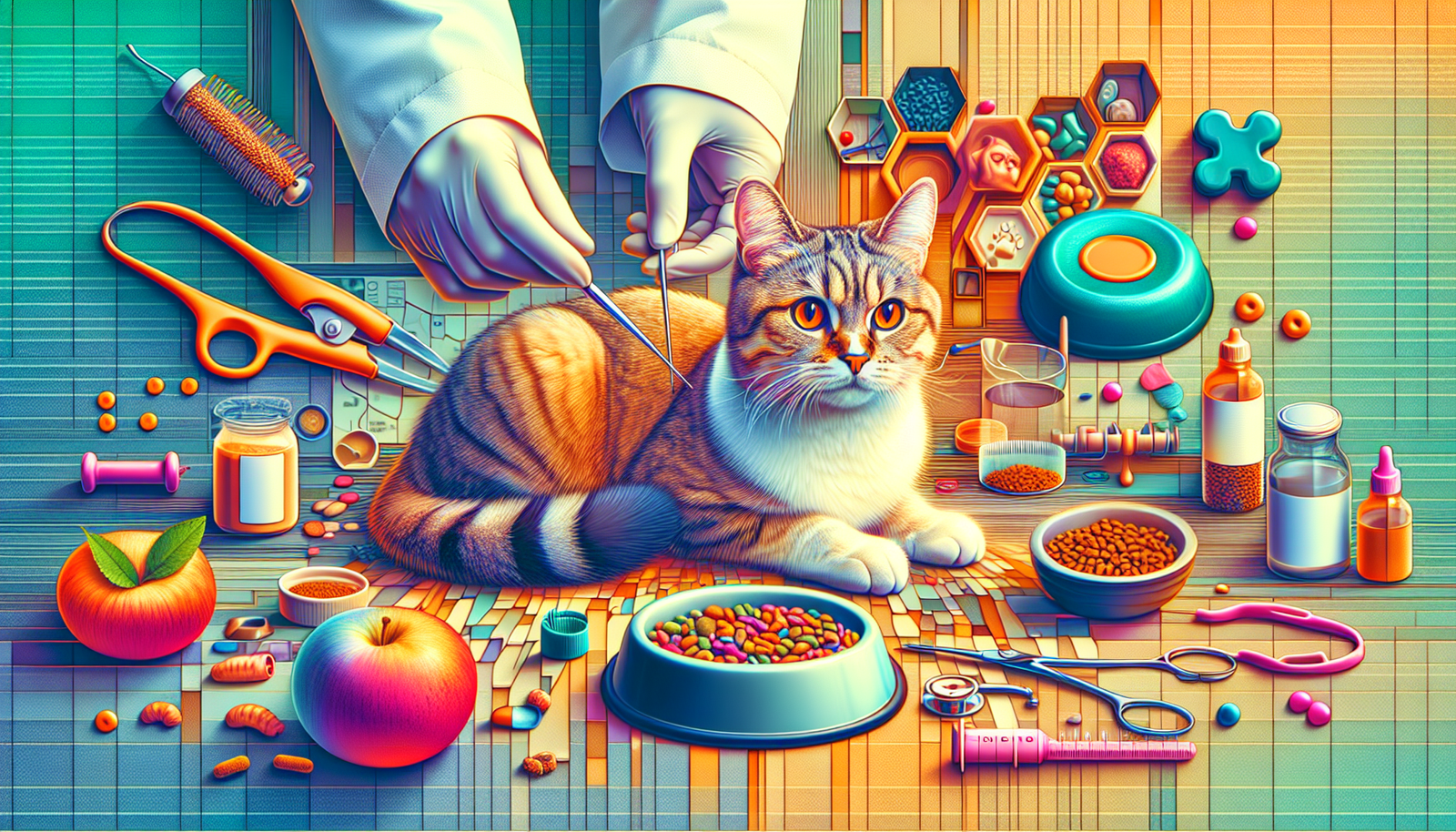Have you ever wondered how long your cherished indoor tabby cat is likely to live? In this article, we’ll explore the average lifespan of indoor tabby cats and the factors that contribute to their longevity. From diet and exercise to regular veterinary care, we’ll provide helpful insights to ensure that your beloved feline companion enjoys a happy and healthy life for many years to come. So, let’s uncover the secrets behind the impressive lifespan of indoor tabby cats and discover practical ways to enhance their well-being.

Factors Affecting Lifespan of Indoor Tabby Cats
Genetics
Genetics play a crucial role in determining the lifespan of indoor tabby cats. Just like human beings, cats inherit certain genetic traits from their parents, which can influence their health and longevity. Some genetic factors may make certain cats more prone to certain diseases and health conditions that can shorten their lifespan. It’s important to consider the lineage and health history of the tabby cat when adopting or purchasing one.
Nutrition and Diet
The type and quality of food provided to indoor tabby cats can significantly impact their lifespan. Feeding your cat a balanced and nutritious diet is essential for their overall well-being and longevity. Cats are obligate carnivores, which means that their diet should primarily consist of high-quality animal protein. Providing them with a diet that meets their nutritional needs, including essential nutrients such as taurine and omega-3 fatty acids, is crucial for their overall health and longevity.
Exercise and Activity Level
Regular exercise and physical activity are essential for maintaining the health and longevity of indoor tabby cats. Engaging in physical activities helps them maintain a healthy weight, prevents obesity-related health issues, and promotes muscle strength and flexibility. Indoor tabby cats should have access to interactive toys, scratching posts, and playtime with their owners to ensure they get the exercise they need. Providing them with opportunities to climb, play, and explore can contribute to their overall well-being and potentially increase their lifespan.
Healthcare and Veterinary Care
Regular veterinary care is vital for the well-being and longevity of indoor tabby cats. Routine check-ups, vaccinations, and preventive care can detect and address any health issues before they escalate. Vaccinations protect cats from various infectious diseases, while preventive measures such as flea and tick control keep them free from parasites. Additionally, spaying or neutering your tabby cat can prevent reproductive-related health issues and certain types of cancer. It’s important to work closely with a veterinarian to establish a comprehensive healthcare plan tailored to your cat’s needs.
Stress and Environmental Factors
The environment and stress levels can significantly impact the lifespan of indoor tabby cats. Stressors such as loud noises, lack of social interaction, changes in routine, and overcrowding can affect their overall well-being and lead to various health issues. Creating a stress-free environment for your tabby cat is essential for their mental and physical health. Providing a comfortable and quiet space, interactive toys, and regular social interaction can help minimize their stress levels and potentially increase their lifespan.
Average Lifespan of Indoor Tabby Cats
Gender Differences
While there may be some variations, gender alone does not play a significant role in determining the average lifespan of indoor tabby cats. Both male and female tabby cats can live long and healthy lives with proper care and attention. It is crucial to focus on other factors such as genetics, nutrition, exercise, healthcare, and environmental factors to ensure their well-being and increase their lifespan.
Indoor vs. Outdoor Comparison
Indoor tabby cats tend to have a longer lifespan compared to their outdoor counterparts. The indoor environment provides protection from hazards such as traffic accidents, predators, exposure to harsh weather conditions, and the risk of contracting infectious diseases. Keeping your tabby cat indoors minimizes the chances of accidents and potential dangers, increasing their likelihood of living a longer and healthier life.
Tabby vs. Non-Tabby Cats
The coat pattern of a cat, whether tabby or non-tabby, does not directly impact their lifespan. The lifespan of a tabby cat can be influenced by various factors such as genetics, diet, exercise, healthcare, stress levels, and environmental factors, just like any other cat. It’s important to focus on providing proper care and attention to ensure the well-being and longevity of both tabby and non-tabby cats.
Common Health Issues in Indoor Tabby Cats
Obesity and Weight-Related Conditions
Obesity is a common health issue in indoor tabby cats. Lack of exercise, a sedentary lifestyle, and overfeeding can lead to weight gain and obesity. Obesity increases the risk of various health conditions in cats, including diabetes, arthritis, cardiovascular disease, and respiratory problems, all of which can significantly shorten their lifespan. Monitoring your tabby cat’s weight, providing a balanced diet, and engaging them in regular physical activity can help prevent obesity and weight-related health issues.
Dental Problems
Dental problems are prevalent in indoor tabby cats and can be a source of discomfort and pain. Plaque and tartar build-up can lead to periodontal disease, tooth decay, and gum infections. These oral issues can affect their overall health and longevity. Regular dental care, including toothbrushing, providing dental treats, and scheduling professional dental cleanings, is crucial for maintaining good oral hygiene and preventing dental problems.
Urinary Tract Issues
Indoor tabby cats are prone to urinary tract issues, such as urinary tract infections and bladder stones. These conditions can cause discomfort, pain, and potentially life-threatening complications if left untreated. Ensuring your tabby cat has access to fresh water, providing a balanced diet that promotes urinary health, and monitoring their litter box habits can help prevent and detect urinary tract issues early on, contributing to their overall longevity.
Diabetes
Diabetes is a metabolic disorder that can affect indoor tabby cats. Obesity, poor diet, and lack of exercise can increase the risk of developing diabetes. This chronic condition requires ongoing management and can significantly impact a cat’s quality of life and lifespan. Working closely with a veterinarian and following a prescribed treatment plan, including proper diet, exercise, and medication if necessary, can help manage diabetes and potentially extend a tabby cat’s lifespan.
Hypertension
Hypertension, or high blood pressure, can affect indoor tabby cats. This condition can lead to serious health issues, including cardiovascular problems, damage to organs such as the kidneys and eyes, and an increased risk of strokes. Regular monitoring of blood pressure and working with a veterinarian to manage hypertension, potentially through medication and lifestyle adjustments, can help maintain their overall health and longevity.
Tips for Increasing the Lifespan of Indoor Tabby Cats
Regular Veterinary Check-ups
Scheduling regular veterinary check-ups is essential for maintaining the health and longevity of indoor tabby cats. Regular examinations can help detect any health issues early on, allowing for prompt treatment and prevention of potential complications. Vaccinations, parasite control, dental examinations, and overall wellness assessments should be part of the routine veterinary care for your tabby cat.
Proper Nutrition and Weight Management
Feeding your indoor tabby cat a balanced and nutritious diet is vital for their overall health and longevity. Consult with a veterinarian to determine the best diet for your cat, considering their age, activity level, and any specific health concerns. Portion control is important to prevent overfeeding and obesity. Monitoring their weight and making necessary adjustments to their diet can help maintain a healthy weight and prevent weight-related health issues.
Preventing Dental Issues
Establishing a dental care routine is crucial for preventing dental problems in indoor tabby cats. Regular toothbrushing using veterinarian-approved toothpaste, providing dental treats or toys, and scheduling professional dental cleanings can help maintain good oral health. Preventing dental issues can contribute to your tabby cat’s overall well-being and potentially increase their lifespan.
Promoting a Stress-Free Environment
Creating a stress-free environment is essential for the mental and physical health of indoor tabby cats. Minimize loud noises, provide a calm and comfortable living space, and offer hiding spots or elevated perches where they can retreat if they feel overwhelmed. Spending quality time with your tabby cat, providing interactive toys, and engaging in play sessions can help reduce stress and promote their overall well-being.
Providing Mental and Physical Stimulation
Indoor tabby cats need mental and physical stimulation to thrive and increase their lifespan. Engage them in interactive play sessions using toys that encourage physical activity and mental stimulation. Offer scratching posts, puzzle toys, and access to windows to satisfy their natural instincts and keep them mentally sharp. Providing variety in their environment and keeping them mentally engaged can contribute to their overall well-being and potentially extend their lifespan.

Conclusion
The lifespan of indoor tabby cats can be influenced by various factors, including genetics, nutrition, exercise, healthcare, stress levels, and environmental factors. By understanding and addressing these factors, you can increase the chances of your tabby cat living a long, healthy, and fulfilling life. Working closely with a veterinarian, providing a well-balanced diet, ensuring regular exercise and mental stimulation, and creating a stress-free environment are key aspects of promoting the longevity of indoor tabby cats. Remember, your tabby cat’s well-being is in your hands, so make the necessary efforts to provide the best care possible to ensure they live a happy and healthy life.

